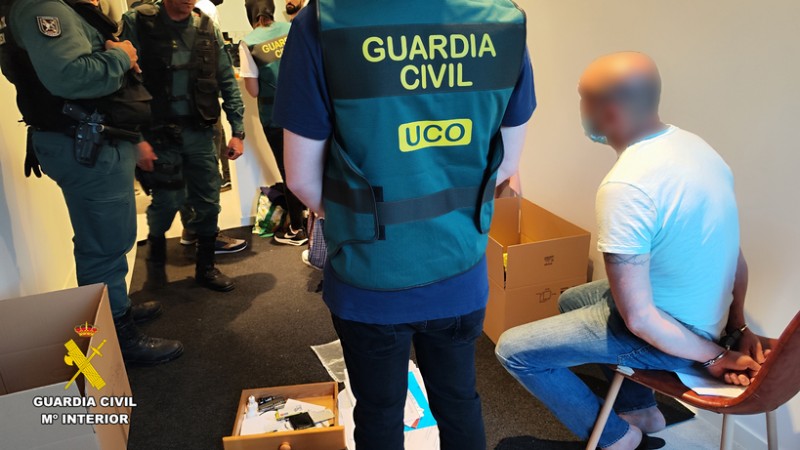According to Thursday's statement, three Russians, one Romanian, and one Spaniard were involved in the theft, counterfeiting, and selling of vehicles in other countries.
The investigation began over a year ago when the Guardia Civil's Central Operational Unit detected a significant increase in the thefts of specific makes and models of vehicles.
During the operation, police seized thirteen stolen cars, over a hundred original keys of different models, a license plate punching machine, and several handmade computer tools.
The group utilized a highly specialized homemade computer tool equipped with malicious software to bypass the electronic security measures installed by the manufacturer.
They operated in various Spanish cities, including Madrid, Murcia, and Alicante. Once they identified a suitable vehicle, they would use the tool to open and start it within minutes.
The group utilized a garage in the town of Alcalá de Henares, owned by one of the members, to forge license plates for the stolen cars. They would affix these license plates to the stolen vehicles to make the numbers correspond to legal vehicles of the same make, model, and color. The stolen vehicles were then parked in public places to avoid suspicion.
The stolen vehicles were subsequently transported to different parts of Spain and handed over to group members responsible for making forgeries. They would modify the physical and electronic records of the cars, including the vehicle identification number, manufacturer's identification stickers, and registration numbers recorded in the Electronic Control Unit.
Additionally, they generated new electronically coded ignition keys with the updated car data, enabling them to pass thorough inspections.
The organization maintained several industrial warehouses located in Murcia and Alicante, where the stolen vehicles were concealed while awaiting transport to other countries. There, they would be registered, provided with new documentation, and sold on the legal market.



